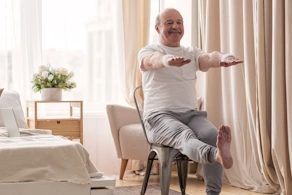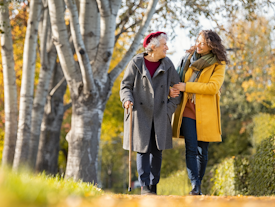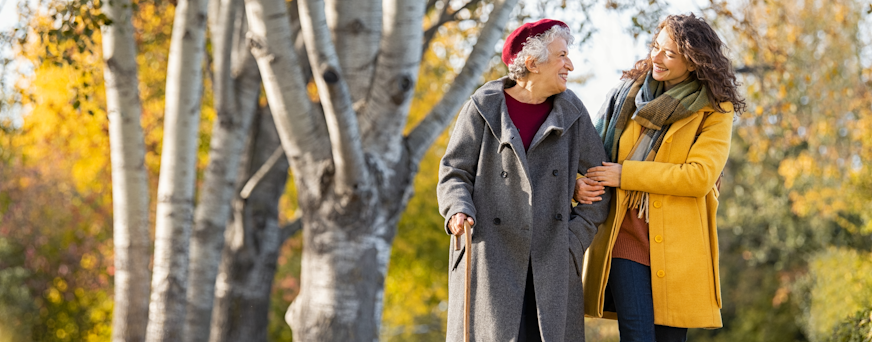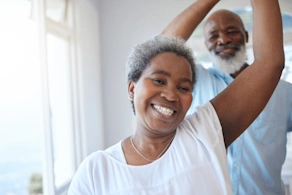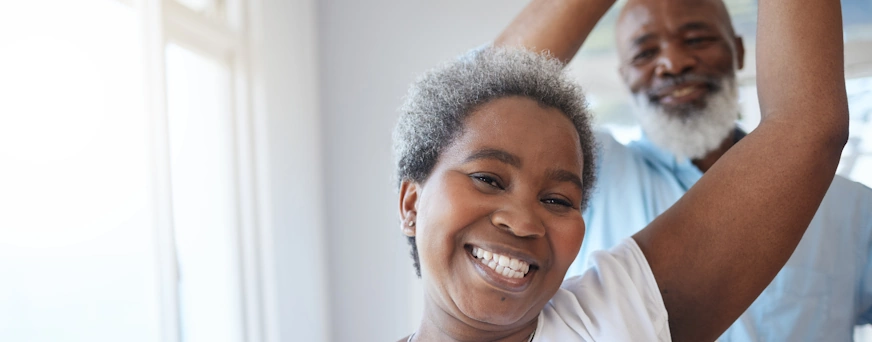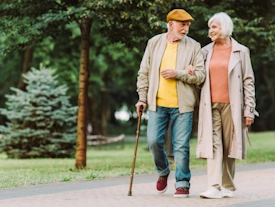Walking Canes for Seniors: Enhancing Safety and Mobility
Walking sticks have been a part of human society for centuries since their inception and now they have evolved into essential mobility aids.
These days, canes play a major role in enhancing the safety and agility of seniors, as the elderly are prone to ailments caused by old age such as arthritis, osteoporosis, Parkinson's disease, and numerous balance disorders.
Anything that significantly impairs one's walking ability invites a high fall risk, impairing independence.
Hence, modern canes have been carefully engineered with technical precision that would provide stability, lessen strain on weak joints, and give the utmost confidence while walking.
Adjustable height, ergonomic handles, and specialized bases provide better support for users. Choosing a cane is a critical decision due to the needs of individuals including their medical condition and lifestyle attributes.
To know more about how these walking sticks benefit the elderly and how to select the perfect cane for specific requirements, delve further into this article.
Life Assure Product Quiz
Take our 30 second quiz and discover which Life Assure medical alert device is the right fit for you or a loved ones.
Life Assure Product Quiz
Take our 30 second quiz and discover which Life Assure medical alert device is the right fit for you or a loved ones.
How does walking staff enhance mobility and safety for seniors?

Let age not stop you from walking about exploring. Here are a few advantages of using walking staffs to help older people navigate the world.
Improved Stability and Balance
The interlinking of balance and stability in terms of coordination, which is a repetition of higher-order brain functions, is required for static equilibrium.
Conditions such as stroke, multiple sclerosis, and partial blindness cause a breakdown in spatial awareness coordination of visual cue placement and their feet.
Individuals with hemiparesis (weakness on one side of the body due to a stroke) or vision impairments face this coordination between the eye and foot movement, thereby increasing the chances of falls.
For this reason, walking canes serve as a significant solution by providing a physical point of focus to regain stability. Canes enable users to have a rhythmic gait by serving as a constant reference point.
The additional point of contact with the ground helps redistribute weight in order to stabilize the body against the effects of weak or unresponsive limbs.
Improved Stability and Balance
The interlinking of balance and stability in terms of coordination, which is a repetition of higher-order brain functions, is required for static equilibrium.
Conditions such as stroke, multiple sclerosis, and partial blindness cause a breakdown in spatial awareness coordination of visual cue placement and their feet.
Individuals with hemiparesis (weakness on one side of the body due to a stroke) or vision impairments face this coordination between the eye and foot movement, thereby increasing the chances of falls.
For this reason, walking canes serve as a significant solution by providing a physical point of focus to regain stability. Canes enable users to have a rhythmic gait by serving as a constant reference point.
The additional point of contact with the ground helps redistribute weight in order to stabilize the body against the effects of weak or unresponsive limbs.
Joint relief
Joints are complex structures where bones join together, cushioned by collagen, lubricated by synovial fluid, and stabilized by ligaments and tendons. In perfect joints, the cartilage absorbs shocks and allows for smooth circular motions.
These cartilages wear down with age or due to disease or other maladies, and they may allow the bones to rub on one another, causing pain or stiffness.
With every step, a joint of the lower limbs of the body absorbs such exceedingly high weight, often many times its own weight, especially in activities like climbing the stairs. Such loads may aggravate pre-existing joint pain and cause greater injury to already damaged areas.
Walking sticks allow the weight borne by the lower limbs to be transferred to the upper body, which thus reduces stress on the joints in each of these areas: hip, knees, and ankles.
This kind of walking equipment is especially useful for people suffering from osteoarthritis and rheumatoid arthritis, among others, or other degenerative joint disorders whose cartilage cushioning the joints becomes eroded and this causes friction, pain and inflammation on movement.
Fall or injury prevention
Walking sticks prevent falls and further injury by acting as an extension of the user’s proprioceptive system to the sufferer's proprioceptive body system, which controls spatial awareness and balance.
The loss of strength in the muscles or flexibility of the joints and diminished perceptive ability of the senses are naturally attendant in the wear and tear of aging.
The immediate provision of physical support offered by canes may be one significant way to prevent falls.
Such support might be useful if, for example, a senior finds herself coping with an uneven surface or sudden obstacle: the cane provides a moment's stopping power so a stumble does not become a fall.
Posture Support (Hunch back support)
Walking staffs provide support to those who tend toward postural problems. They are extremely useful for people with spinal problems or back pain.
Many elderly persons and those with mobility restrictions often assume a hunched or curved posture because of muscle weakness, joint pain, or degenerative spinal conditions like scoliosis, kyphosis, or osteoporosis.
This strain from a prolonged hunch almost amounts to a needless fee: it aggravates and causes all the problems with the back and the knee in the subterranean areas of the body.
Choosing a Walking Cane for Seniors

If you’re planning to buy a walking cane for your senior family member, consider the following factors.
Evaluate How Much Support Is Needed
Identify whether a regular cane, quad cane, or specialized support cane is necessary according to the user's difficulties concerning balance and mobility.
Most people who have moderate stability problems might benefit from the use of a standard cane; those who require additional sturdiness might be able to manage just fine with a quad cane.
Always consult a health professional to ensure that the choice made meets users' particular needs.
Establish One That Fits
The correct height of the cane is a paramount factor for comfort and ease of use. When the cane is held upright, it should permit the elbow to bend at about 15-20 degrees.
Using a cane of incorrect height can put two strains on the wrist or loosened shoulder blades and the back, thus axing the very purpose of a mobility aid.
Pick the Type of Handle That Fits
Handles come in various designs, such as T-shaped, ergonomic, or offset, each suited to different needs. Ergonomic handles serve to prevent the user's wrist from strain, while offset handles offer better weight distribution.
A proper handle provides comfort when used for a longer period; in such a way, it minimizes the possibility of blisters or discomfort.
Conclusion
To conclude, with better balance, less weight on joints, and a manner of walking with a straight back, canes are effective support in helping the daily life of seniors.
An appropriate cane, giving due regard to the unique needs a few select seniors require, can go a long way in enhancing this function, thus cementing the status of walking canes as a necessary instrument for living with dignity and independence.











 Get Help With The Push Of A Button
Get Help With The Push Of A Button
